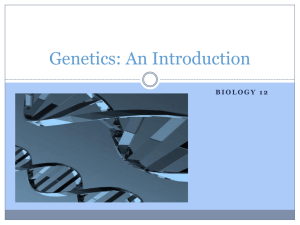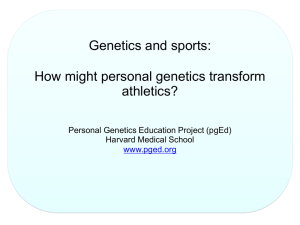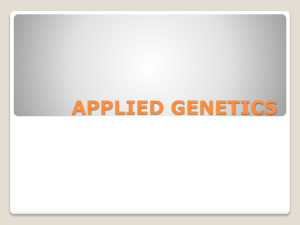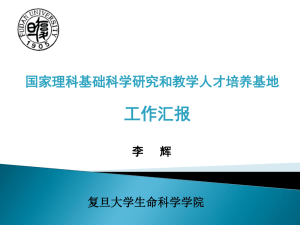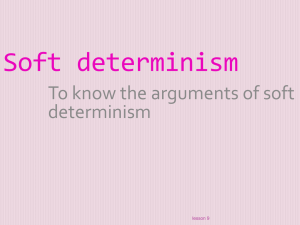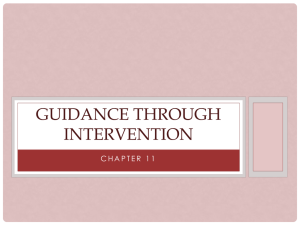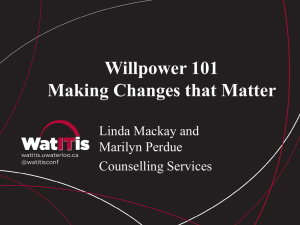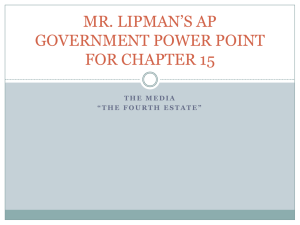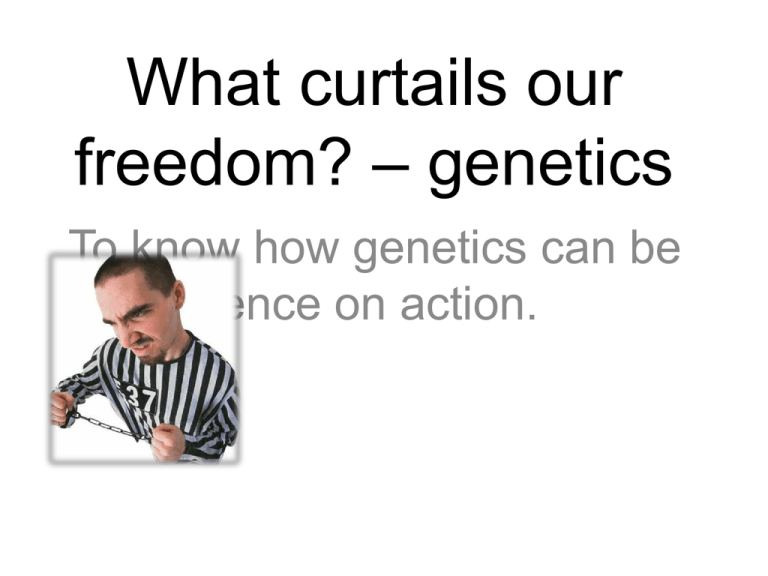
What curtails our
freedom? – genetics
To know how genetics can be
an influence on action.
LESSON OBJECTIVES
• TO EXPLAIN THE RELEVENCE OF
GENETICS TO THE FREE WILL DEBATE.
STARTER
Homework
“FREEWILL IS REQUIRED IN ORDER FOR US
TO PUNISH PEOPLE. “
DISCUSS.
YOU SHOULD GIVE REASONS FOR AND
AGAINST THE STARTMENT.
USE THE ESSAY TEMPLATE FOR YOUR
ANSWER.
STARTER
• HOW IMPORTANT IS FREE WILL TO US?
• WHY IS IT IMPORTANT?
• WHAT IS MORAL RESPONSIBILITY?
• WHY IS FREE WILL REQUIRED FOR IT?
• WHAT DOES “OUGHT IMPLIES CAN
What is the theory of genetics?
Living beings pass on and inherit traits
from their parents.
Traits are passed on through genes which
make up the DNA of an individual.
Genes are directly responsible for the way
in which a person looks, their sex, hair
colour, race and many other factors.
As the science of genetics has developed
specific genes are being identified as
factors in other human functions.
GENETICS and ENVIRONMENT
Scientists are starting to
unravel how much impact
genetic combinations might
have on our
PREDISPOSITIONS to act
in a certain way.
Some hold that we may be
far more programmed than
we originally thought.
Both in terms of our genetic
heritage and also in our
social upbringing.
•
•
•
•
What genes are there?
Gay gene
Gambling gene
Obesity gene
WHAT AFFECTS US?
NURTURE
NATURE
• GENETICS
PARENTAL
UPBRINGING
PEER GROUP
SOCIAL CLASS
EDUCATION
The influence of genetics and
environmental factors are
unknown.
There may always be random
elements or variables that
whilst it may be more likely
that person x does y it is not
NECESSARY.
I may have a disposition to
behave in a certain way but I
have enough willpower to
restrain my action before I act.
What curtails our
freedom? – will
power
To know how we limit
our own freedom.
LESSON OBJECTIVES
• TO EXPLAIN HOW WE CAN CURTAIL OUR
FREEDOM THROUGH SELF RESTRAINT
AND THE SOCIAL CONTRACT.
SELF RESTRAINT AND
WILLPOWER
1. Human beings as well as being influenced by their
genes are influenced by mental factors.
2. We experience emotions and desires and these in
turn are responsible for some of our actions.
3. Romantic emotions make you act to create a
relationship.
4. Sexual desire makes you want to have sex.
5. Desires for food make people seek food when
required.
SELF RESTRAINT AND
WILLPOWER
1. Five minutes.
• List as many desires and emotions as you
can and connect them to the ways in which
we could act.
• Can you stop your desire? What is it that
stops that desire?
• FREE WILL?
DESIRES
AND
ACTIONS
SELF RESTRAINT AND
WILLPOWER
1. Desires and actions can be
stopped by willpower and self
restraint.
2. Some people are able to control
their urges and limit their
freedom.
3. Not all people are able to resist
temptations
4. Self restraint may have a
genetic disposition but it may be
due to ethical or religious beliefs
5. The beliefs of the person may
SELF RESTRAINT AND
WILLPOWER
1. We generally want to act
to stop desires.
2. We feel that the ability to
stop our desires is what
separates ourselves from
animals.
3. How else do we stop our
freedoms?
LIVING IN SOCIETY
1. Society has a set of rules that are
followed.
2.
3. This is called a social contract.
4. Limitations on freedoms are put in place
to maximise the freedom of all people.
5. Order justice and civilisation come about
by people agreeing to some basic rules
of conduct.
6. What would society be like if there was
no rules?
7. Do you have a choice over these rules?
LIVING IN SOCIETY
1. What would society be like if
there was no rules?
2. Do you have a choice over
these rules?
3. Nazis in 1930 organised a
set of rules which
marginalised a section of
society. Their social contract
severely limited the freedom
of a group of individuals.
CONFLICT OF FREE WILLS
1. If we all are free to act then
eventually some freedoms will
conflict.
2. Crossing in the road and
supermarket example.
3. Individual freedom requires us to
think about how conflict is handled.
4. Freedoms are curtailed out of social
convention.
5. These are not to be underestimated
as they may be strong enough to
motivate a gay man to marry a
woman for the sake of his family.
SUMMARY
• Moral responsibility may be mitigated by the
degree to which we were free when we acted
• Arguably environmental influences play a
strong role in determining behaviour –
perhaps we are not as free as we think!

